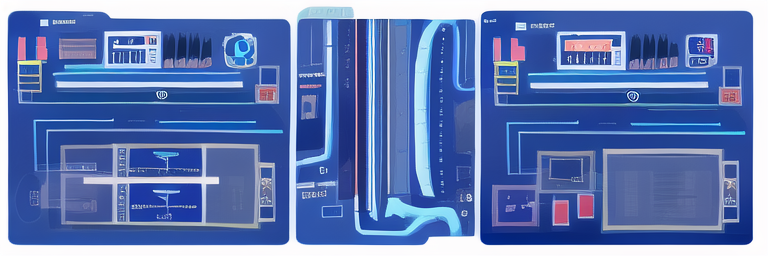ERP vs CRM Software
ERP (Enterprise Resource Planning) software is a type of business management software designed to manage the day–to–day operations of a business. It is usually used to manage the accounting, inventory, and human resource functions of a company. ERP software is designed to streamline operations and reduce costs.
CRM (Customer Relationship Management) software is a type of software designed to help businesses better manage customer relationships. It is used to track customer interactions, provide customer service, and manage sales and marketing efforts. CRM software helps companies better understand their customers and build stronger relationships with them.
The main difference between ERP vs CRM software is the focus. ERP software is focused on managing the operations of a business, while CRM software is focused on managing customer relationships. ERP software is typically used by larger companies, while CRM software is used by businesses of all sizes. ERP software is also typically more expensive than CRM software.
Overall, ERP and CRM software are both essential components of any business. Both types of software can help a business become more efficient, reduce costs, and better manage customer relationships. The choice between ERP and CRM software will depend on the size and needs of the business.
Which to Choose | ERP vs CRM Software
ERP (Enterprise Resource Planning) software is better for companies looking to optimize the performance of their back office operations, such as accounting, inventory, and production. CRM (Customer Relationship Management) software is better for companies looking to better understand their customers and build relationships with them.
If a company needs help with both operations and customer relations, then a combination of ERP and CRM software may be the best option. ERP software can help streamline back–end processes, while CRM software can help the company better understand and engage with customers.
Advantages and Challenges
ERP (Enterprise Resource Planning) and CRM (Customer Relationship Management) software are two of the most important tools available to businesses today. ERP and CRM software can help businesses streamline their processes, improve customer service, and increase efficiency. However, the integration of these two systems can also present challenges that businesses must address in order to get the most out of their software investments.
Advantages of ERP and CRM Software
ERP and CRM software are designed to help businesses better manage their data and processes. ERP software provides a comprehensive view of an organization’s operations and financials, while CRM software provides a unified platform for managing customer relationships. By integrating these two systems, businesses can gain greater visibility into their operations, process information more quickly and accurately, and make more informed decisions. Additionally, ERP and CRM software can help businesses save time and money by automating processes, reducing manual data entry, providing real–time access to data, and eliminating redundant tasks.
Challenges of ERP and CRM Software
Although ERP and CRM software have many advantages, integrating the two systems can present challenges for businesses. Implementing and integrating the software can be a time–consuming and costly process, and businesses may need to invest in additional hardware and software in order to ensure that the systems are compatible. Additionally, businesses must ensure that they have the necessary staff in place to properly manage the integration and maintenance of the systems. Finally, the integration of ERP and CRM software can lead to data silos if not properly managed, which can lead to inefficiencies.
In conclusion, ERP and CRM software can provide businesses with many advantages, but they must also address the challenges associated with integrating the two systems. With the right resources and planning, businesses can ensure that their ERP and CRM software investments are a success.
The Future
The future of ERP and CRM software looks very bright. With the continued growth of cloud computing, more and more companies are turning to ERP and CRM software to streamline their operations and increase efficiency. ERP and CRM software are becoming increasingly sophisticated and are able to integrate more and more information into a single system. This integration is helping companies to save time and money, as well as improve customer service.
In the future, ERP and CRM software will become even more automated, with the ability to create automated workflows and processes. This will enable companies to quickly and easily manage their operations, with minimal manual intervention. Additionally, AI and machine learning capabilities will be increasingly prevalent in ERP and CRM software, allowing companies to automate more complex tasks and processes.
Finally, ERP and CRM software will be increasingly mobile and accessible on any device, at any time. This will enable companies to be more agile and responsive to customer needs and demands, as well as to quickly access and analyze data from anywhere. This will help companies to gain more insights into their operations and customer relationships, leading to better decisions and improved customer satisfaction.

